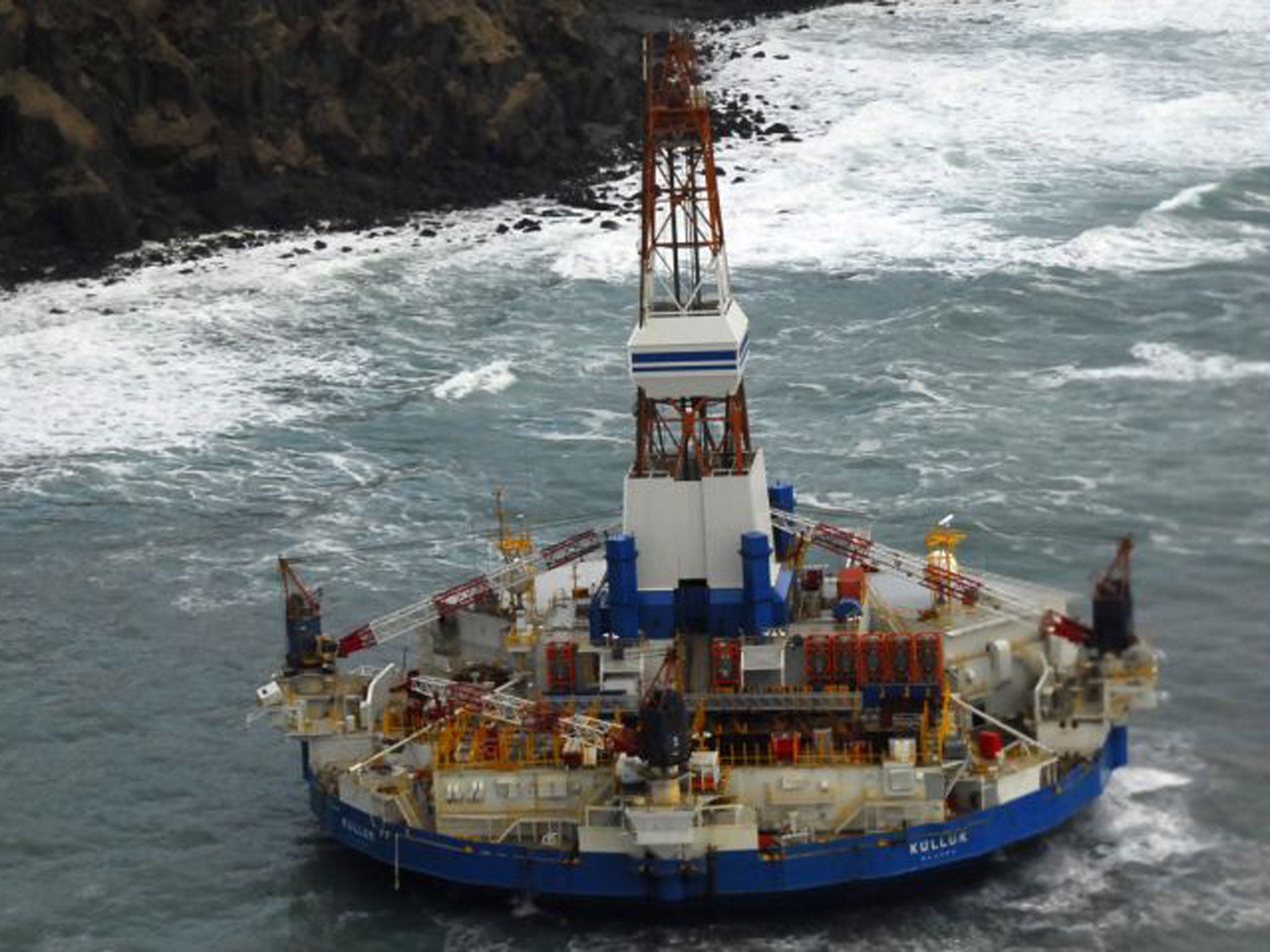Climate change threat to North Sea oil and gas output from increasingly intense storms caused by global warming
Bigger waves could damage oil rig platforms and make it harder for staff to do their jobs

The North Sea oil and gas industry is set to lose hundreds of millions of pounds a year as global warming threatens to unleash increasingly frequent and intense storms, producing bigger waves that could damage platforms and make it harder for staff to do their jobs, the International Energy Agency (IEA) warned today.
Announcing that global greenhouse emissions jumped by 1.6 per cent to a new record last year, the International Energy Agency (IEA) said the world is on course for a 4C temperature increase in the long-term. This is double the 2C global warming goal agreed by nearly 200 countries but yet to be translated into a legally-binding target.
"A 2C difference doesn't mean that you just need to take your jacket off, it would have devastating implications," said IEA chief economist Fatih Birol.
Unless the world takes dramatic action to curb greenhouse gas emissions by 2020, we can expect "sudden and devastating" consequences, such as a significant increase in the frequency and severity of storms, he warned.
A temperature rise of anything approaching 4C would hit the North Sea oil and gas industry hard, fostering stronger and more frequent storms.
The stormier weather would add "hundreds of millions" of pounds to the costs of the North Sea oil and gas industry, in the form of damage, lost production and, most of all, the construction costs to strengthen the platforms, Mr Birol said.
And even if the temperature rise is less dramatic, the hydrocarbon producers should take pre-emptive action now and invest heavily to boost their infrastructure, he added.
"Oil companies need to strengthen their platforms. This will lead to higher costs but will improve the resilience of the structures," said Mr Birol.
The IEA - which advises the governments of its 28 member countries, including the UK - urged politicians to take swift action to combat climate change yesterday.
"Climate change has quite frankly slipped to the back burner of priority politics. But the problem is not going away - quite the opposite…We simply can't afford to delay," said IEA executive director Maria van der Hoeven.
The agency issued a broadly gloomy prognosis of magnitude global warming, warning that while a 4C rise was the "central scenario" the increase could be as high as 5.3C.
However, Mr Birol said he was encouraged by the apparently growing commitment of China and the US to tackle climate change. The two countries, which are responsible for 45 per cent of global emissions, announced at the weekend that they would work together for the first time to tackle climate change.
Although their joint effort will initially be confined to the relatively insignificant class of chemicals commonly used in fridges and air conditioners - known as hydrofluorocarbons - experts said it was a hugely symbolic move which could herald far greater co-operation between the US and China.
"In itself, it's a very big step but not a game-changer. But it is sending a policy signal that could well be game changing," Mr Birol said.
The IEA said that the world could go 80 per cent of the way towards putting itself back on track for a 2C rise by 2020 at no net cost to the global economy.
It could do this through improving energy efficiency in buildings, industry and transport, reducing the amount of methane produced by oil and gas companies, limiting the construction and use of the "least efficient" coal-fired power plants and reducing fossil fuel subsidies.
Back on the North Sea, Mr Birol said the cost of additional storm-proofing would add between 10 and 15 per cent to price of a platform. Meanwhile the industry association Oil & Gas UK said North Sea explorers are likely to spend £13bn on "installing new kit" this year, implying an extra infrastructure cost of up to £200m a year, based on the 15 per cent figure.
Join our commenting forum
Join thought-provoking conversations, follow other Independent readers and see their replies
Comments